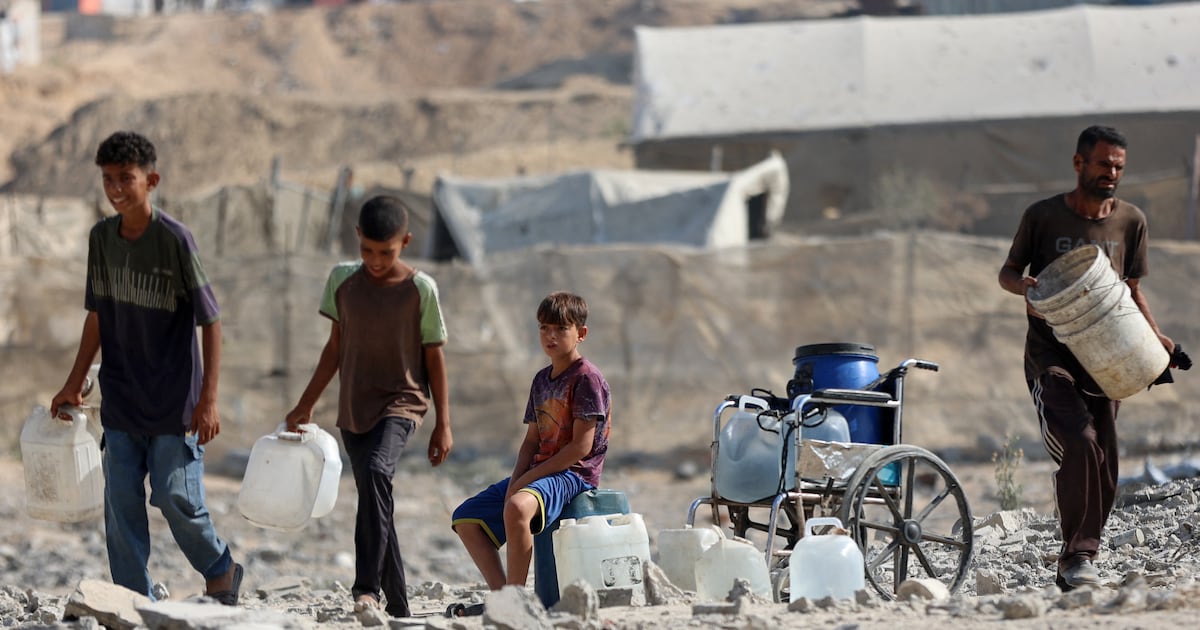World
UN Report Accuses Israel of Seeking Permanent Control Over Gaza

A recent report from the United Nations independent commission of inquiry has accused Israel of demonstrating a clear intent to establish permanent control over Gaza while ensuring a Jewish majority in the West Bank. The 22-page document outlines a pattern of land confiscation, population displacement, and discriminatory practices regarding land and housing, as well as the construction of Israeli settlements.
The release of this report coincides with a significant moment in international diplomacy, as several countries, including France, Britain, Canada, and Australia, have formally recognized a Palestinian state. This recognition has sparked renewed debate during the United Nations General Assembly sessions, highlighting the ongoing tensions in the region.
The commission reported that Israel’s actions have led to the conquest of approximately 75 percent of Gaza’s territory and the systematic displacement of Palestinians. The commission emphasized that these actions have deprived the Palestinian population of “resources indispensable for their survival.” Furthermore, the report stated that Israel’s treatment of Palestinians in Gaza amounts to the infliction of conditions calculated to destroy, in whole or in part, the Palestinian population, which could be interpreted as an underlying act of genocide.
According to Navi Pillay, the head of the commission, Israel must “immediately end and reverse its confiscation and use of Palestinian land in Gaza.” She insisted that all confiscated land should be returned to its rightful owners. Pillay argued that these measures have not only failed to enhance security but have instead deepened the suffering of Gazans, depriving them of essential resources, including the ability to produce food.
In the occupied West Bank and East Jerusalem, Israeli policies have reportedly included both explicit and implicit support for violent settlers, demonstrating a clear intent to forcibly transfer Palestinians and expand the Jewish Israeli civilian presence. The commission warns that these actions threaten Palestinian self-determination and statehood, perpetuating an indefinite occupation.
Israeli military operations in areas like Jenin, Tulkarem, and the Nor Shams refugee camps have also been scrutinized. The commission noted that such operations have significantly altered the geographical landscape through the destruction of buildings and infrastructure, resulting in the displacement of Palestinian residents. These actions were characterized as collective punishment, which is prohibited under international law.
Israel has maintained that its military operations are directed not at the civilian population but specifically at Hamas, the militant group responsible for the October 7, 2023, attack that ignited the current conflict. The Israeli mission in Geneva dismissed the commission’s findings, asserting that the report reflects a biased agenda, claiming that “Hamas has genocidal intent towards Israel.”
As Israel continues its ground operations in Gaza City, it has rejected what it describes as “scandalous accusations” from the commission, including earlier claims of genocide. The international community watches closely as the situation evolves, with ongoing debates about the implications for peace and security in the region.
-

 Top Stories3 months ago
Top Stories3 months agoTributes Surge for 9-Year-Old Leon Briody After Cancer Battle
-

 Entertainment4 months ago
Entertainment4 months agoAimee Osbourne Joins Family for Emotional Tribute to Ozzy
-

 Politics4 months ago
Politics4 months agoDanny Healy-Rae Considers Complaint After Altercation with Garda
-

 Top Stories4 months ago
Top Stories4 months agoIreland Enjoys Summer Heat as Hurricane Erin Approaches Atlantic
-

 World5 months ago
World5 months agoHawaii Commemorates 80 Years Since Hiroshima Bombing with Ceremony
-

 Top Stories3 months ago
Top Stories3 months agoNewcastle West Woman Patricia Foley Found Safe After Urgent Search
-

 Top Stories5 months ago
Top Stories5 months agoFianna Fáil TDs Urgently Consider Maire Geoghegan-Quinn for Presidency
-

 World5 months ago
World5 months agoCouple Convicted of Murdering Two-Year-Old Grandson in Wales
-

 World5 months ago
World5 months agoGaza Aid Distribution Tragedy: 20 Killed Amid Ongoing Violence
-

 World5 months ago
World5 months agoAristocrat Constance Marten and Partner Convicted of Infant Murder
-

 Top Stories4 months ago
Top Stories4 months agoClimbing Errigal: A Must-Do Summer Adventure in Donegal
-

 Top Stories4 months ago
Top Stories4 months agoHike Donegal’s Errigal Mountain NOW for Unforgettable Summer Views









